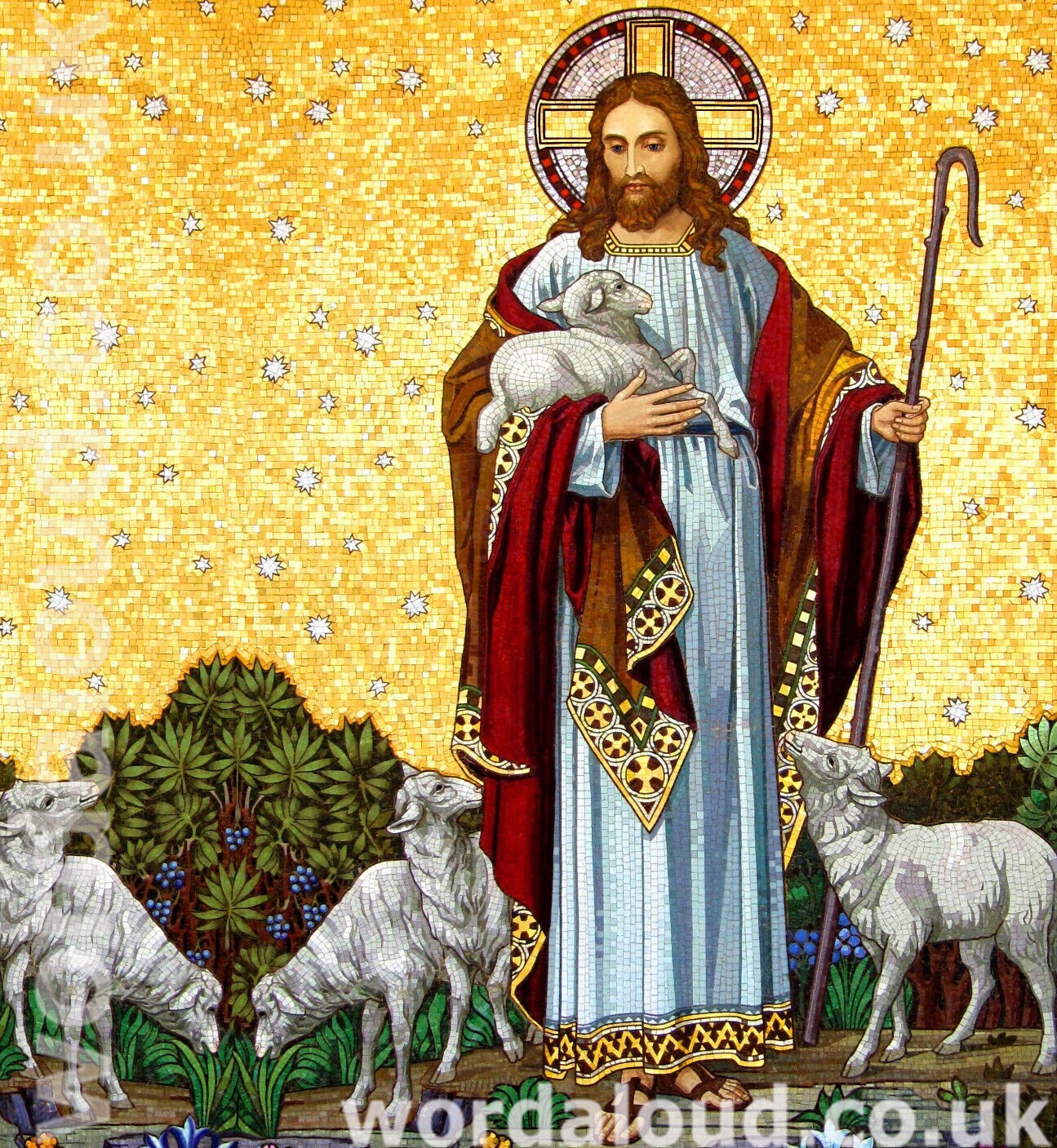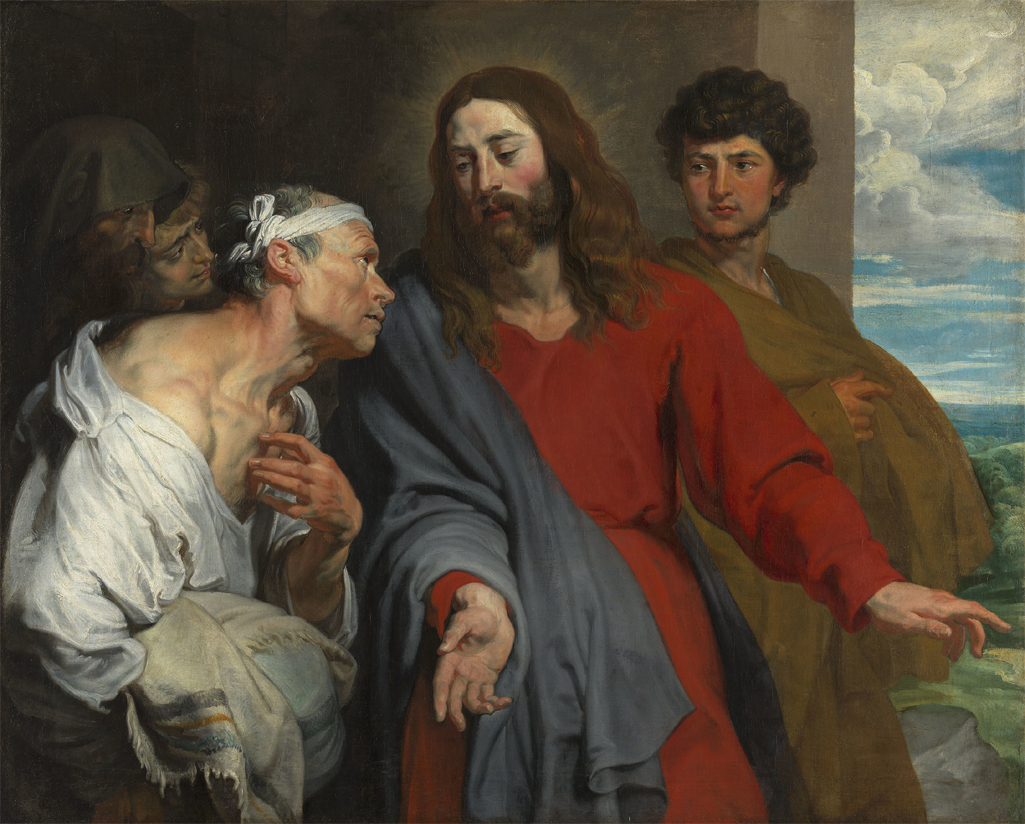Christian Art | Boy At Prayer | Jesus | Crucifixion | Holy Week
Office Of Readings | Monday Of Holy Week | A Reading From The Sermons Of Saint Augustine
‘Let us also boast in the cross of the Lord.’
At the heart of Saint Augustine’s sermon is a paradox that stands at the center of our faith: that the suffering and death of Jesus is not a defeat, but a triumph; not a cause for shame, but a reason to boast.
The Cross As Ground Of Hope
Saint Augustine begins by naming the Passion of Christ as ‘the hope of glory and a lesson in patience’. In other words, it is both a promise and a pattern. The Cross, he tells us, is not only what saves us—it also teaches us how to live. It shows us how God loves, and how we are called to love in return: not with power or prestige, but with endurance, humility, and self-giving.
This is not simply pious sentiment. It’s a bold statement. The crucifixion was the most humiliating and brutal form of death in the ancient world. It was reserved for the lowest and the worst—criminals, rebels, and slaves. That God would choose to enter into that place of suffering is staggering. And yet, Augustine says, this is precisely the foundation of our hope.
‘What may not the hearts of believers promise themselves,’ he asks, ‘when for their sake God’s only Son… even died at the hands of the men he had created?’
The sheer generosity of God’s love is on full display. Christ died not because we deserved it, but because we needed it. And because he did, we now have the surest reason to trust that he will not withhold anything else—not even eternal life.
The ‘Wonderful Exchange’
One of the most moving parts of the sermon is Augustine’s reflection on what later theology would call the admirable exchange—the idea that Christ took on what is ours, so that we might receive what is his:
‘Of ourselves we had no power to live, nor did he of himself have the power to die… Through us, he died; through him, we shall live.’
Augustine paints a beautiful picture of this divine trade. Christ had to take on our mortal flesh in order to die, because by nature, as God, he is immortal. He does not die by compulsion, but by choice—entering into the full experience of human frailty so that we might share in the power of divine life. In this, the Passion becomes more than a historical event. It becomes a door, an exchange, a gift freely given and waiting to be received.
No Longer A Scandal, But A Glory
The Cross, then, is no longer something to be hidden or apologized for. It becomes the center of Christian identity. Augustine points us to Saint Paul, who wrote in Galatians: ‘Far be it from me to boast except in the cross of our Lord Jesus Christ.’ For both Paul and Augustine, the Cross is not just the instrument of salvation—it is the shape of the Christian life.
Augustine urges us to embrace this with boldness. The world may see the Cross as weakness or folly, but faith reveals it as glory. It is the place where love goes to its furthest end, where God himself is most fully revealed—not in triumph over others, but in suffering for them.
‘Let us confess [the Cross], not in fear but in joy, not in shame but in glory.’
This is a powerful word, especially as we begin Holy Week. The liturgies of these days draw us deeply into the Passion of Christ—not as spectators, but as participants. In the Cross, we see the measure of God’s love. We see the cost of our salvation. But we also see the pattern we are called to follow: to give ourselves, as Christ did, in love.
Looking Forward With Confidence
Augustine closes his reflection by turning our eyes to the future. If Christ was willing to suffer for us while we were still sinners, how much more will he be faithful in giving us the reward of righteousness? If he gave us his death, will he not also give us his life?
This is not optimism. It is confidence rooted in the character of God—his mercy, his constancy, and his love. As we walk with Christ through the events of Holy Week—his betrayal, his suffering, his crucifixion—Augustine reminds us that this journey ends in glory. The Cross is not the end, but the beginning. It is the seed from which resurrection grows.

A Reading From The Sermons Of Saint Augustine
The passion of our Lord and Saviour Jesus Christ is the hope of glory and a lesson in patience.
What may not the hearts of believers promise themselves as the gift of God’s grace, when for their sake God’s only Son, co-eternal with the Father, was not content only to be born as man from human stock but even died at the hands of the men he had created?
It is a great thing that we are promised by the Lord, but far greater is what has already been done for us, and which we now commemorate. Where were the sinners, what were they, when Christ died for them? When Christ has already given us the gift of his death, who is to doubt that he will give the saints the gift of his own life? Why does our human frailty hesitate to believe that mankind will one day live with God?
Who is Christ if not the Word of God: in the beginning was the Word, and the Word was with God, and the Word was God? This Word of God was made flesh and dwelt among us. He had no power of himself to die for us: he had to take from us our mortal flesh. This was the way in which, though immortal, he was able to die; the way in which he chose to give life to mortal men: he would first share with us, and then enable us to share with him. Of ourselves we had no power to live, nor did he of himself have the power to die.
In other words, he performed the most wonderful exchange with us. Through us, he died; through him, we shall live.
The death of the Lord our God should not be a cause of shame for us; rather, it should be our greatest hope, our greatest glory. In taking upon himself the death that he found in us, he has most faithfully promised to give us life in him, such as we cannot have of ourselves.
He loved us so much that, sinless himself, he suffered for us sinners the punishment we deserved for our sins. How then can he fail to give us the reward we deserve for our righteousness, for he is the source of righteousness? How can he, whose promises are true, fail to reward the saints when he bore the punishment of sinners, though without sin himself?
Brethren, let us then fearlessly acknowledge, and even openly proclaim, that Christ was crucified for us; let us confess it, not in fear but in joy, not in shame but in glory.
The apostle Paul saw Christ, and extolled his claim to glory. He had many great and inspired things to say about Christ, but he did not say that he boasted in Christ’s wonderful works: in creating the world, since he was God with the Father, or in ruling the world, though he was also a man like us. Rather, he said: Let me not boast except in the cross of our Lord Jesus Christ.








